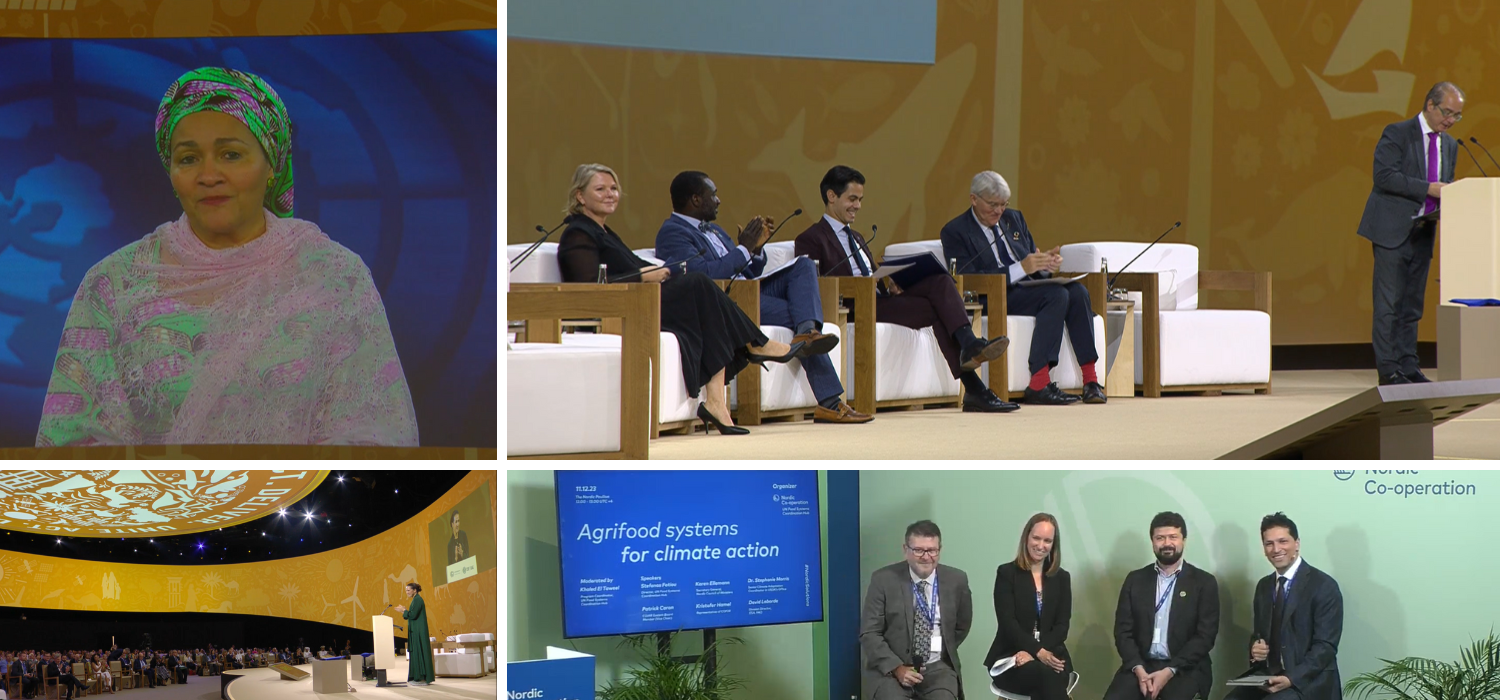SEED FUNDING JOINT PROGRAMMES
Rwanda
Resilient Food Systems: Enhanced Value Chain and Post Harvest Management





PROJECT TITLE | Resilient Food Systems: Enhanced Value Chain and Post Harvest Management |
| Context | Food systems transformation is embedded in several national policies in Rwanda, including the National Transformation Strategy, the Strategic Plan for Agriculture Transformation, the National Environment and Climate Change Policy. In 2021, Rwanda developed its National Pathway, which highlights four priority areas for the country towards 2030: ensuring food security and nutrition for all, while increasing demand for healthy diets; enhancing the environmental sustainability of food systems; improving livelihoods for farmers and all workers in food systems while building resilience to shocks; promoting inclusion of women and youth in food systems, including through enhanced financial opportunities. |
| PUNOs | FAO, WFP, IFAD |
| Contribution to SDGs | SDG 1 No Poverty; SDG 2 Zero Hunger; SDG 8 Decent Work and Economic Growth; SDG 13 Climate Action |
| Contribution to other SDG transitions | Decent Jobs and Universal Social Protection; Energy Access and Affordability |
| Duration | July 2024 – June 2025 |
| Expected financial leverage | $ 3,070,000 |
| Alignment with SG Call to Action | Policy integration; Food systems governance; Research, data, technology and innovation; Inclusive and participatory design; Private sector engagement |
| Outcomes | The JP leverages on improved post-harvest management as a strategic approach to simultaneously reduce food loss, improve incomes, and boost food availability. The JP promotes the economic integration of youth-led MSMEs and builds linkages with partners and initiatives focused on nutrition and food security to connect the dots between food production, processing and consumption. |
| Partners |
|
| Outputs |
|
Advancing sustainable food systems and climate goals at COP28
The UN Food Systems Coordination Hub collaborates with the COP28 Presidency to advance sustainable food systems and support national efforts towards the SDGs and Paris Agreement targets.

In a year of strategic partnership between the UN Food Systems Coordination Hub and the COP28 Presidency, the Hub marked its inaugural participation at the 28th Session of the United Nations Conference of the Parties on Climate Change (COP28) held from November 30 to December 12, 2023, in Dubai, United Arab Emirates.
The COP28 Presidency has underscored the vital role of food systems in accelerating the Sustainable Development Goals (SDGs) and the Paris Agreement targets. The Food Systems and Agriculture Agenda, launched during the UN Food Systems Summit +2 Stocktaking Moment (UNFSS+2) in Rome, prioritizes key food systems objectives, including aligning national pathways and agricultural policies with Nationally Determined Contributions (NDCs) and National Adaptation Plans (NAPs) by 2025. The Hub played a pivotal role in advancing these objectives and was acknowledged as a key partner in implementing the Emirates Declaration on Sustainable Agriculture, Resilient Food Systems, and Climate Action, endorsed by 159 countries. Additionally, the Hub's new Convergence Initiative gained recognition as a critical step in transforming food systems in alignment with climate action in addition to supporting the COP28 UAE Declaration's implementation.
During COP28's "Food, Agriculture, and Water Day," the Hub co-organized several events emphasizing the vital role of food systems transformation in addressing climate change. For more information, please refer to the Hub’s COP28 webpage.
This year’s COP marked a significant milestone in global efforts to address the crucial interplay between climate change and food systems. As the world faces the growing challenges posed by climate change, it is increasingly evident that transforming food systems is not merely a component but a linchpin in achieving a sustainable and climate-resilient future.
The Hub will continue to play its role, in cooperation with the COP29 Presidency in Azerbaijan, and the COP30 Presidency in Brazil, to ensure that food systems challenges are addressed and to support National Convenors in transforming their food systems to be healthy, sustainable, and resilient.
